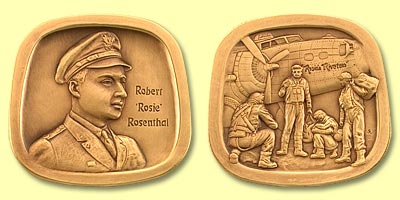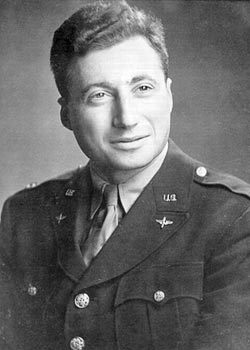|
|
INDEX
People
Abravanel,
Don Isaac
Berg, Gertude (Molly Goldberg)
Berg, Moe
Berle, Milton
Berlin, Irving
Bernstein, Leonard
Brandeis, Louis D.
Cardozo, Benjamin
Einstein, Albert
Elion, Gertrude
Frankel,Jacob
Gershwin, George
Ginsburg, Ruth Bader
Gompers, Samuel
Goode, Alexander
Goodman, Benny
Gratz, Rebecca
Greenberg, Hank
Hillman, Sidney
Hoffman, Jeffrey
Houdini, Harry
Jefferson, Thomas
Karpeles,
Leopold
Lamarr, Hedy
Lazarus, Emma
Lehman, Herbert H.
Levy, Asser
Levy, Uriah P.
Magnes, Judah L.
Meir, Golda
Miller, Arthur
Myerson, Bess
Noah, Mordecai.
Ochs, Adolph
Pulitzer, Joseph
Resnik, Judith
Rose, Ernestine
Rosenthal, Robert
Ross, Barney
Salk, Jonas
Salomon, Haym
Santangel, Luis de
Sarnoff, David
Schick, Bela
Seixas, Gershom M.
Singer, Isaac B.
Stern, Isaac
Straus, Isidor & Ida
Strauss, Levi
Streisand, Barbra
Szold, Henrietta
Torres, Dara
Torres, Luis de
Touro, Judah
Wacks, Mel
Wald, Lillian
Washington, George
Wiesel, Elie
Wise, Isaac Mayer
Zacuto, Abraham
|
 |
|
|

|
Lt.
Col. Robert "Rosie" Rosenthal Medal designed
by Jim Licaretz. |
Robert
"Rosie" Rosenthal (1917-2007)
The day after Pearl
Harbor was attacked, Robert "Rosie" Rosenthal enlisted
in the U.S. Army. In August 1943, he joined the 418th Squadron
of the "Bloody" 100th Bombardment Group, stationed in
England. Thirteen B-17s took off for a bombing mission over Munster
… but only one returned - aptly named "Rosie's Riveters"
- full of holes and flying on two engines. But in spite of the
intercom being out, the oxygen system shot-up and a large ragged
hole in the skin of the right wing, they had successfully dropped
their bombs over the target.
In March,
1944 Rosie's Riveters completed its 25th mission, which completed
their military service. But Rosie reenlisted, saying "I had
to do what I could for as long as I was able." This was in
spite of the fact that 15 missions was the average life of a bomber
crew. Later, Rosenthal was made head of the 350th Squadron after
the CO was shot down. Intelligence Officer Marvin Bowman found
Rosenthal "one of the great figures of the Air Force; a shy,
modest, and patriotic gentleman of truly amazing courage and achievement."
 |
When Rosenthal's plane
went down over Germany in September, he broke his arm and nose
- but luckily was rescued by the Free French, to whom he had dropped
supplies only a few weeks before. As soon as his arm had healed,
Rosie returned to his original (418th) Squadron, and was chosen
to lead a mission to Berlin on February 3, 1945. Even after a
direct flak hit put an engine on fire, his blazing Fortress still
managed to drop its bombs on the targeted Erkner factory before
Rosenthal gave the signal to "Abandon ship." The rest
of the crew parachuted and after B-17 had descended to about 1,000
feet, Rosenthal was the last to leave with the ground dangerously
close … just before the ship exploded. Fortunately, he was
found by Russians, who embraced him and took him to a hospital.
This was his 52nd mission; there was to be just one more. Rosie
flew his last mission after VE-Day … to free prisoners from
concentration camps.
Rosenthal was one of
the most decorated pilots in the Eighth Air Force. He received
16 decorations, including the Distinguished Service Cross for
"extraordinary heroism in connection with military operations
against the enemy," the Silver Star (with cluster) for "gallantry
in action," the Distinguished Flying Cross (with cluster)
for "heroism or extraordinary achievement during aerial flight,"
the Air Medal (with seven clusters), the Purple Heart (with cluster),
plus the British Distinguished Flying Cross and the French Croix
de Guerre.
Shortly after V-E Day,
Rosenthal was back in Germany as an assistant to the United States
Prosecutor at the Nuremberg Trials where, among other things,
he interrogated Nazi leader Hermann Goering.
|
| Artist
Gil Cohen (left) and Robert "Rosie" Rosenthal (right)
with painting of Rosie's Crew/Thorpe Abbotts 1943 |
The medal's
design is based on a painting by Gil Cohen, depicting "Rosie"
briefing his 418th Squadron crew in 1943 on last minute details
before they board their B-17, aptly called "Rosie's Riveters,"
at Thorpe Abbotts, East Anglia, England, home base of the 100th
Bomb Group. Shown are (left to right): Waste Gunner S/Sgt. Loren
Darling, Pilot 1st Lt. Robert Rosenthal, Radio Operator T/Sgt.
Michael Boccuzzi, and Waist Gunner S/Sgt. James Mack.
You can watch a wonderful interview with “Rosie” Rosenthal by clicking here.
Click
Here to Take Robert "Rosie" Rosenthal Quiz
Go to page: First Page Previous Page
Next Page
|